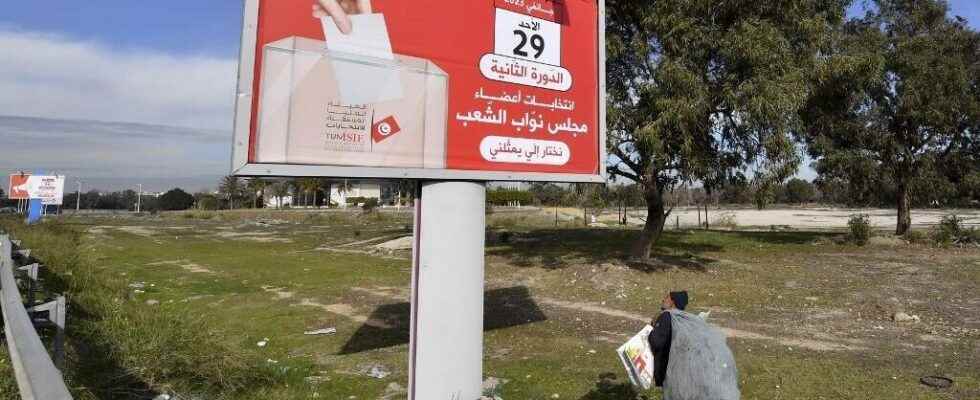Polling stations open at 8 a.m. this Sunday in Tunisia. In all, nearly 8 million Tunisians are called to ballot for this second round of legislative elections. A vote that takes place in a gloomy economic and political context, while a majority of the opposition has decided not to participate.
With our correspondent in Tunis, Amira Souilem
In Tunis this week, it was not uncommon to come across people who were unaware that the second round of legislative elections was being held this Sunday in their country.
The ballot does not excite Tunisians. In the first round, the participation rate – initially established at 8.8% – was raised to 11.22%. This is the lowest participation score in an election since the 2011 revolution. The figures for the second round will therefore be closely scrutinized.
An election that takes place while the country is going through a serious economic crisis. Inflation – standing at 10.1% last month – is added to the cash flow problems of the Tunisian state in full negotiations with the IMF for a new loan.
An economic crisis coupled with a political crisis. Kaïs Saïed, the Tunisian president, who has held full powers for a year and a half, is now also concentrating more and more discontent. The election of 161 deputies in a new National Assembly should not change the situation as its powers have been limited. No more vote of confidence to dub the new government, the censorship of the latter has, moreover, been made very difficult and above all the initiative for laws will continue to be primarily the responsibility of the Head of State.
The opposition is already thinking about the “post-Saïed”
Faced with this situation, the major part of the opposition does not participate in this election and calls for an end to this political process wanted by Kaïs Saïed. The day before the election, some opponents were even working on what they call “post-Saïed”.
These legislative elections are a “ non-event for opponents of the Tunisian president such as Jaouhar Ben M’barek, jurist and headliner of the National Salvation Front movement opposed to Kaïs Saïed. “ The second round does not interest us, we continue our work as if nothing had happened. And that’s not our position, that’s the position of the Tunisians. The country does not live in an electoral atmosphere. It shows, it feels. So, here we go, we continue our work as normal. »
► To listen: Tunisians worried but disillusioned on the eve of the second round of legislative elections
The National Salvation Front believes that the low participation rate in the first round proves an erosion of the credibility of Kaïs Saïed and his political project with Tunisians. ” It is a transition phase, it can last a little. We see it now with the proliferation of initiatives, whether by national organisations, political parties or civil society. Everyone is now thinking about the after Kaïs Saïed, how to organize themselves, how to avoid the institutional vacuum and the political vacuum, how we can find institutional and technical solutions for the post Kaïs Saïed. »
Initiatives which, to date, do not deviate the Tunisian president from his trajectory. The master of Carthage saying he plans to return power to the people according to his words.
► Read also: Tunisia: four organizations promote a “national rescue” two days before the legislative elections
